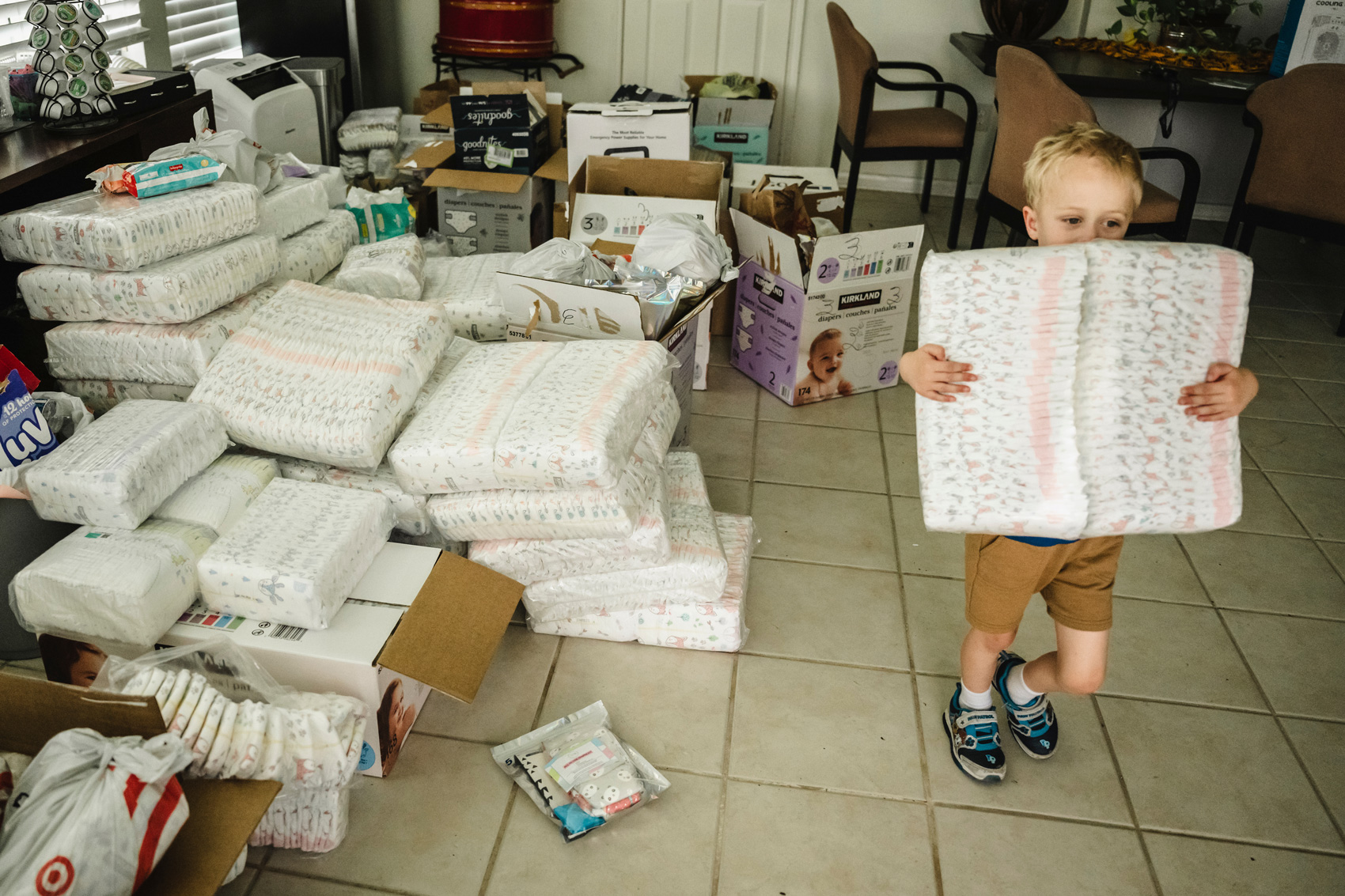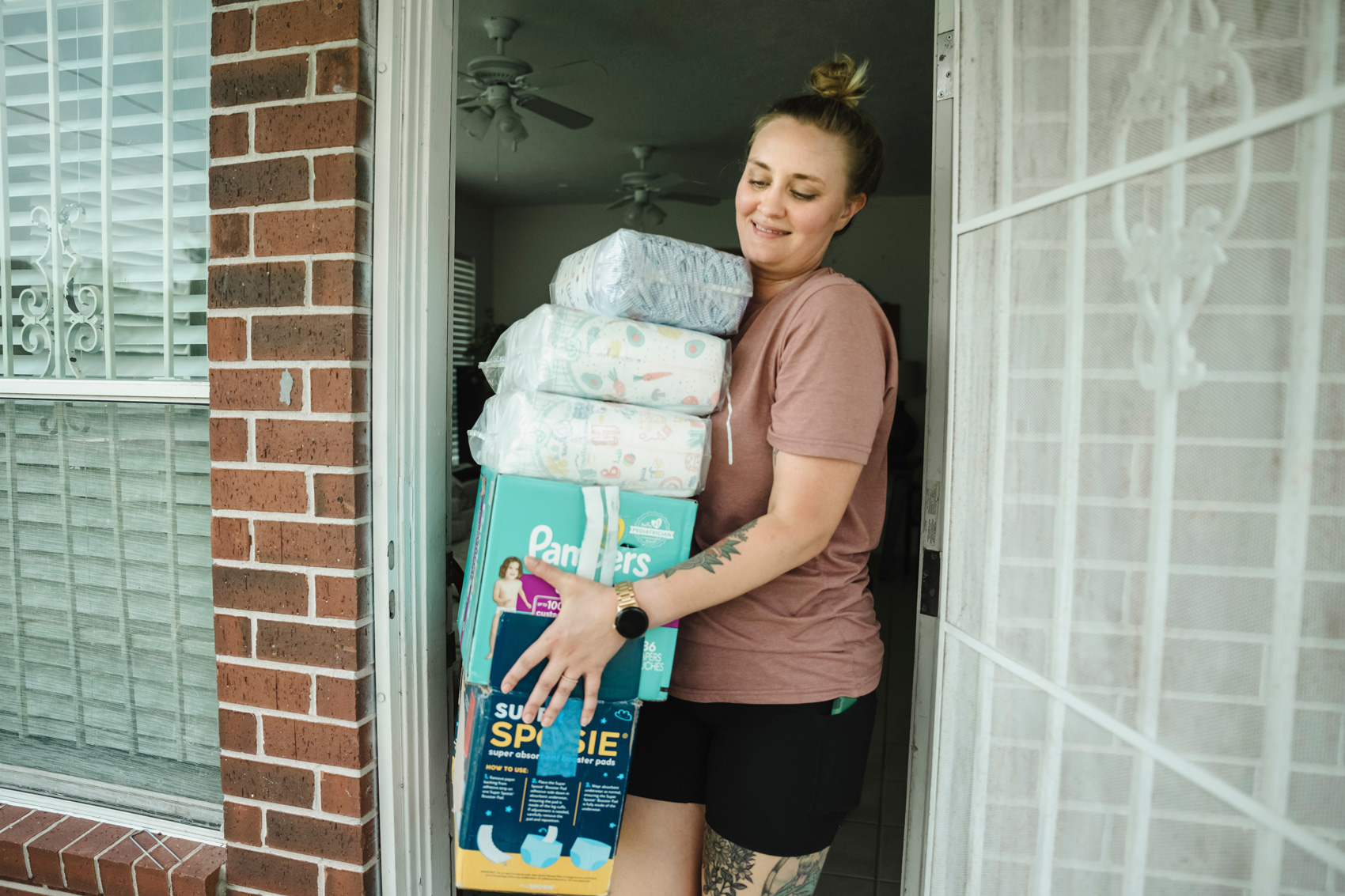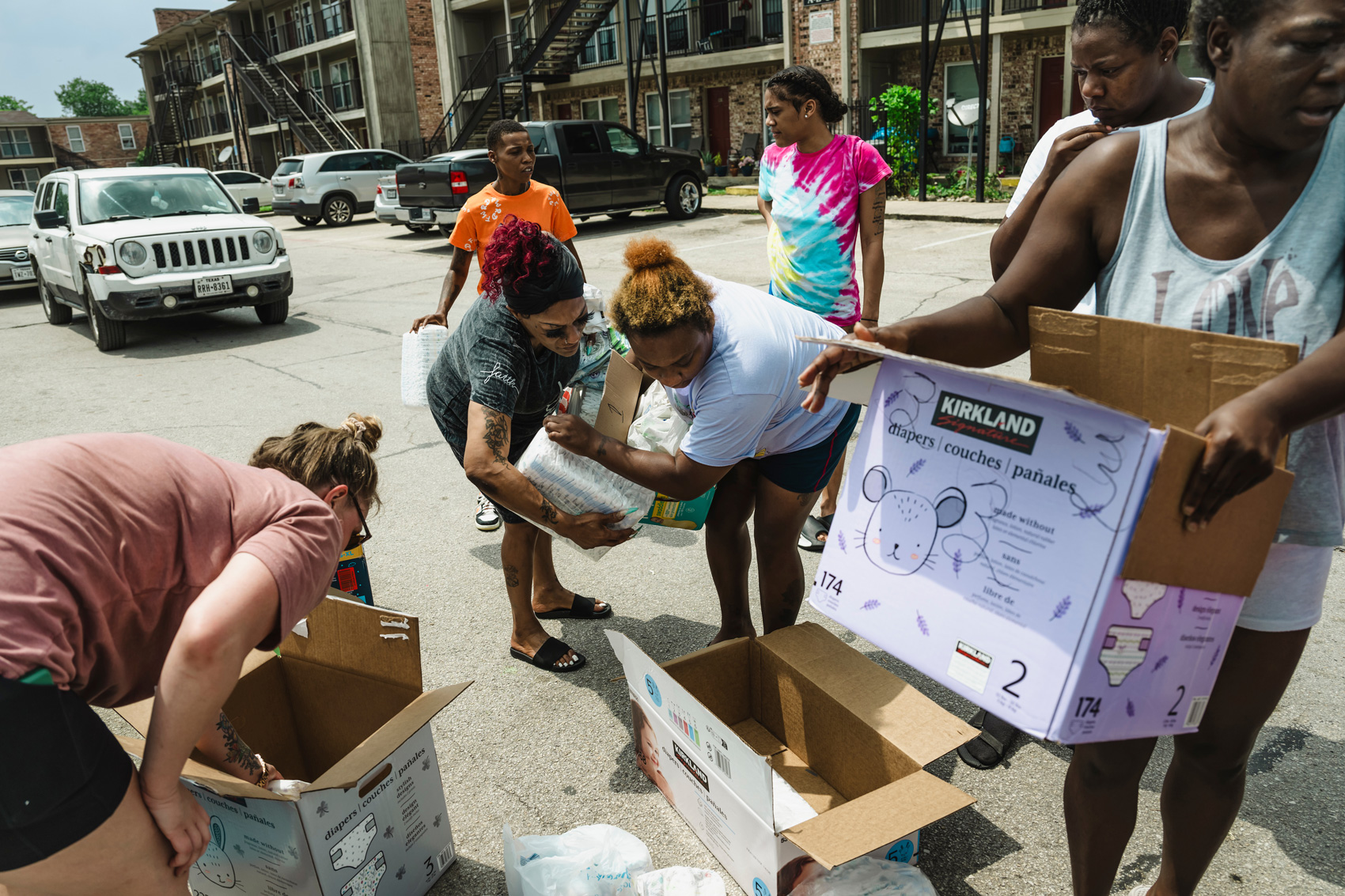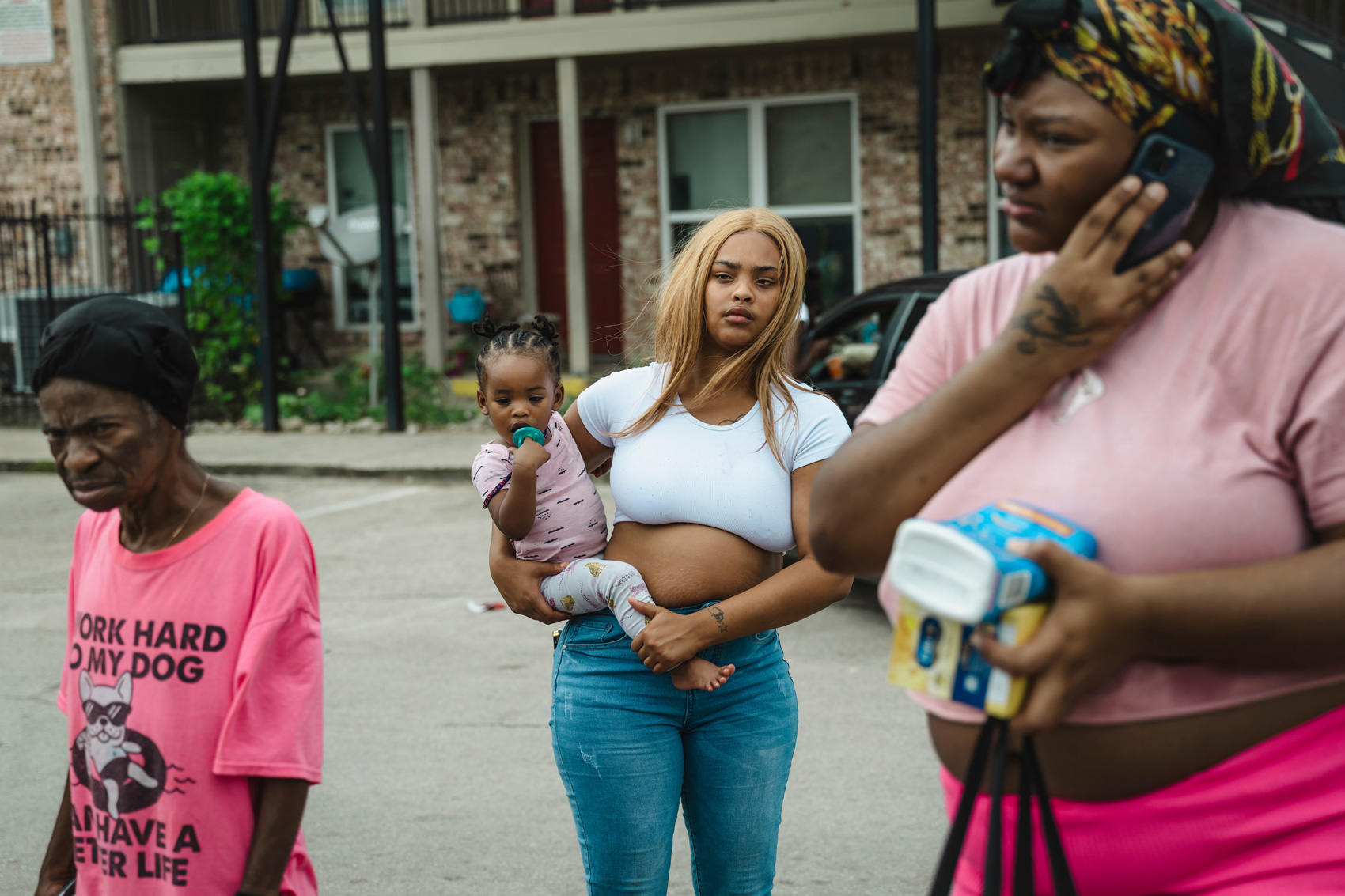|
Getting your Trinity Audio player ready...
|
In the days since the deadly storm that devastated parts of Houston, Sierra McClain’s phone has been buzzing nonstop with texts.
“Need diapers and formula. Can u help?”
“I’m pregnant and in here with no lights.”
“Hey mama, need diapers.”
“Please help.”
The hundreds of requests can be overwhelming for McClain, a birth doula by day and patron saint of Houston parents in times of crisis. But when there are Houstonians in need, she answers the call.
For the past several days, as hundreds of thousands of people sweltered without power, McClain and her small team of grassroots volunteers have fanned out across the city, delivering for left-behind mothers who are pregnant or have young children. Using a word-of-mouth hotline and social media posts, they’ve distributed countless cartons of diapers, wipes and baby formula — no questions asked — to hundreds of families in apartment complexes throughout Houston.
Realizing her job gave her unique access to donated baby supplies and parent support services, McClain found her niche for helping mothers in Houston’s volunteer landscape. For years, McClain has organized grassroots community aid, knowing that families can face confusing hurdles when trying to access help through larger organizations. Since Texas’ 2021 freeze, she has aimed to make disaster relief less “painless” for families, bringing resources directly to people during extreme weather events.
“The people who need help are not getting help,” said McClain, who is better known by the last name Sankofa on social media and among community members. “The first family that reached out when I opened the support line … said that they hadn't had electricity for a month. They hadn't reached out because of a number of different reasons, but one being, the last time they reached out for help, the response they got.”
‘Tagalong activism’
McClain begins Thursday, her seventh straight day of distribution, at Bread of Life, a volunteer organization in Midtown that supplies her with a day’s worth of baby-related donations. Within minutes, volunteer workers squeeze dozens of boxes into the trunk of her Dodge Journey.
“Like playing Tetris,” McClain observes with a smile, briefly looking up from her phone.
McClain is simultaneously managing another operation: fielding messages from her web of volunteers — an assemblage of social media followers, other birth workers and charitable nonprofit employees who have crossed paths with McClain. Her self-described “collective” has grown to roughly 100 helpers, boosted this month by support and shoutouts from Trae Tha Truth, a Houston rapper known for his activism and philanthropy.
Every morning, several of the volunteers share their availability and location, and McClain directs them where to go.
McClain practices what she’s coined as “tagalong activism” — a method which she believes helps her reach people who are missed by larger organization’s relief efforts.
Her scouting for people in need starts with social media posts from larger organizations about disaster relief. She sifts through the comments, trying to find people repeatedly commenting about locations that need assistance. When she spots them, she messages them directly to determine their needs, then identifies a location where she can distribute items while reaching as many people as possible.
“I get in a mode,” McClain said. “And when I get in this mode, I will do whatever I have to do.”
‘Willpower of one person’
Before McClain leaves for Thursday’s distribution location in East Houston, three women drop by with several boxes of diaper donations — some of whom she’d never met.
“This is what happens,” McClain explains, greeting volunteer Priscilla Mensah with a hug. “Folks message me all day and they're like, ‘Where can I catch you?’ I send them my location and say this is where I’ll be, for how long.”
Mensah came across one of McClain’s posts on social media asking for donations. She felt it was a sign. As a Black mother of two who had a challenging first pregnancy, Mensah said she knows what it's like to struggle — and she can’t comprehend being a mother without resources during a crisis.
“It’s the thought of, ‘Oh, somebody is helping those people,’ versus ‘No, (McClain) is helping those people,’” Mensah said. “And she's not an organization with 10,000 people. She's an individual rallying people in the community.
“I also believe that this is how anything gets done. … By the willpower of one person.”
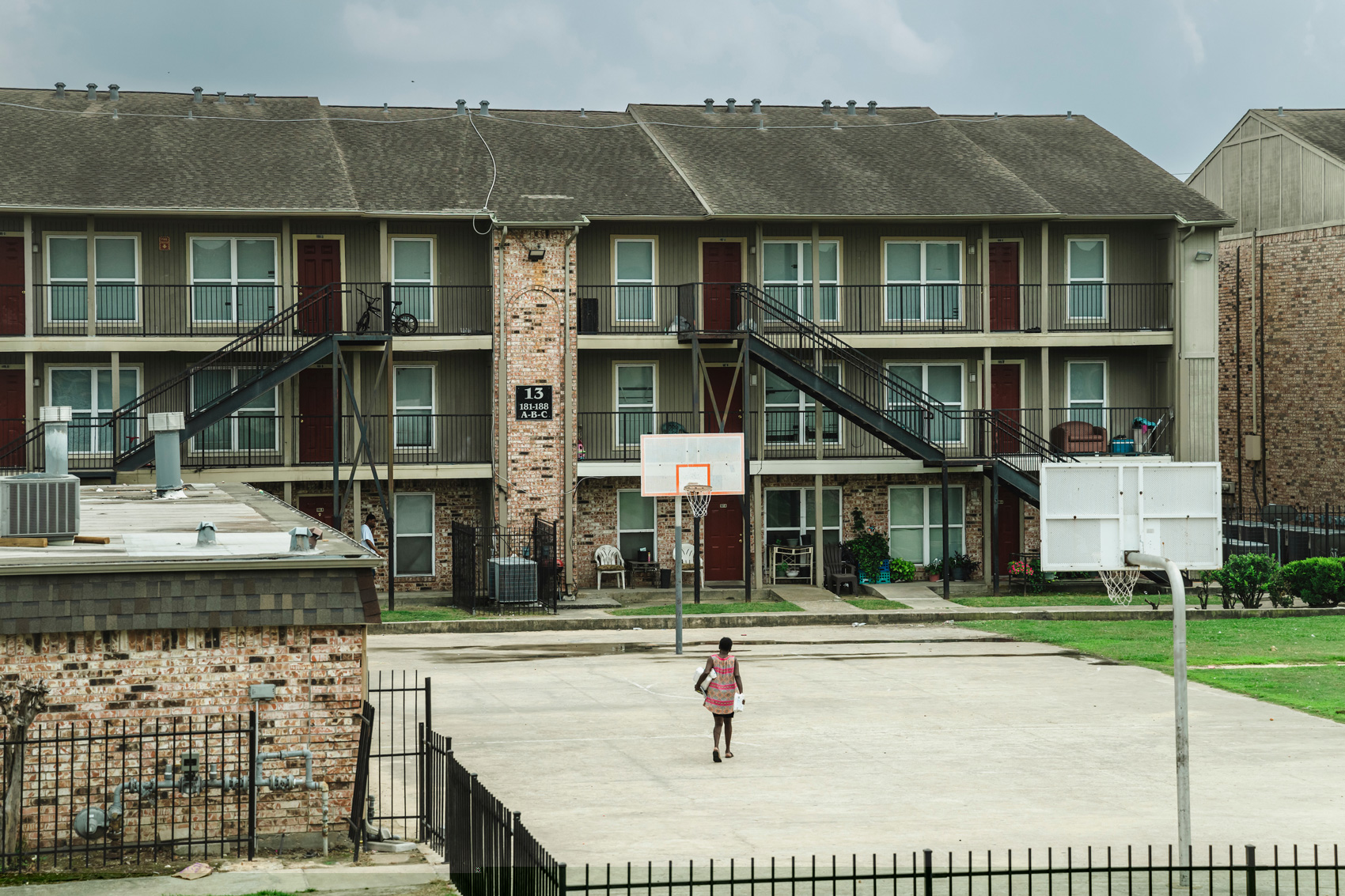
Spreading the word
In 93-degree heat, McClain pounds bottles of water as she and her niece, Tatiana, unload supplies from their trunks in the parking lot of Sterlingshire Apartments in East Houston. The complex didn’t have power for three days after the storm.
“It has been crazy,” said Joyce White, an apartment complex employee who helps take care of the mothers and children living there. “(Residents) lost all of their food.”
McClain and Tatiana create an assembly line: Diapers, lined up by size. Boxes of diaper rash cream. Bags of baby wipes. Yellow, purple and orange cans of formula. Gallon jugs of water.
Once it’s ready to go, McClain begins an Instagram livestream to share the location of the setup. Within minutes, word spreads. Dozens of residents come down from their apartments while dozens more drive by in their vehicles.
As resident Markashia Workman waited for the bus to bring her two children home from Fonwood Elementary School, she collected an armful of supplies. Workman texted all of the mothers she knew in the apartment complex to ask what diaper sizes they use, eager to make sure they received assistance, as well.
Within two hours, most of the stock had been depleted — the mark of another successful day.
To McClain, her efforts transcend meeting people’s physical needs. She just wants people to know “there’s somebody in this world who actually cares” about them.
“Compounding poverty with a natural disaster, it becomes catastrophic. The effects reverberate so far because we're talking about people who have no savings to begin with,” she said. “We have to understand. … This is a human being in front of me. A hungry person is not a creature.”


